The Political Poster
To coincide with the launch of our Poster Project webpage, we asked members of staff at Loughborough University to tell us about their favourite political posters and what it is they like about them.
The political poster has been a powerful campaign tool in protests throughout history. They have been an effective communication tool, using bold design and imaginative wordplay to make their message heard.
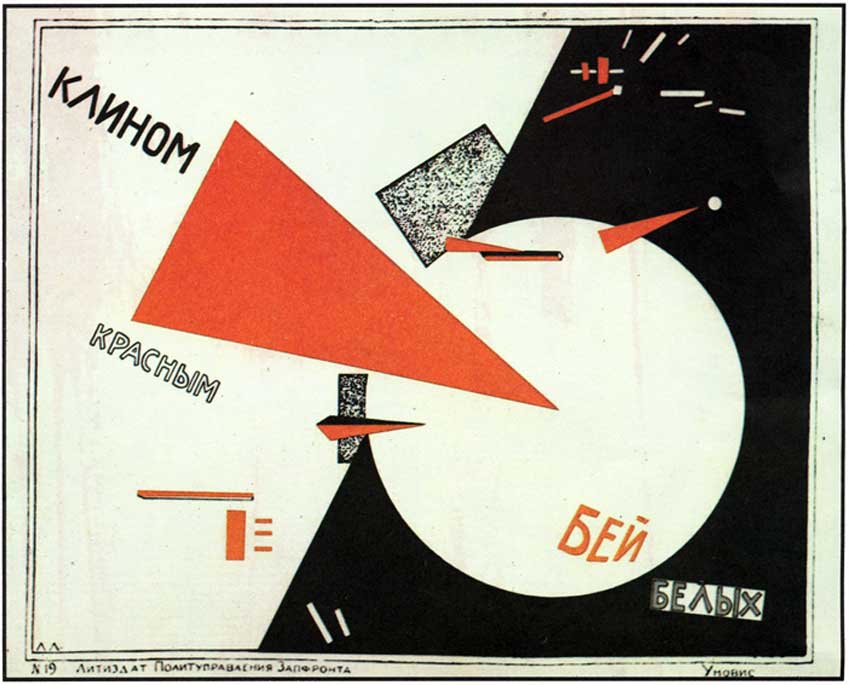
Beat the Whites with the Red Wedge (El Lissitzky, 1919)
David Bell, LU Arts & Radar Producer
In the early days of the Soviet Union so much seemed possible. An emerging artistic avant-garde was central to this, and saw itself as a key architect of the new world. This poster by El Lissitzky is typical of that. It’s actually a piece of wartime propaganda, depicting the Bolsheviks defeating the anti-revolutionary ‘white’ movement, but its marriage of revolutionary form and content promises so much more. Sadly, revolutionary artists soon found themselves out of favour and as the Soviet Union degenerated into Stalinist repression it adopted increasingly conservative visual forms.
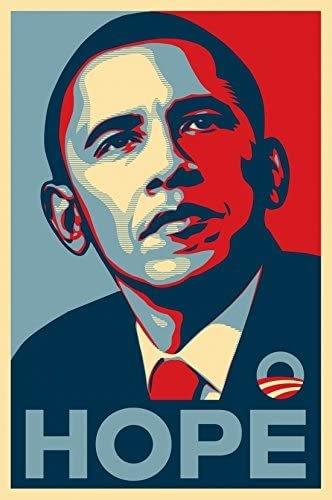
Hope (Shepard Fairey, 2008)
Mary Brewer, Senior Lecturer in English and American Studies
I’ve chosen this poster because it really did give me and many others hope that America was finally becoming a more racially just society.
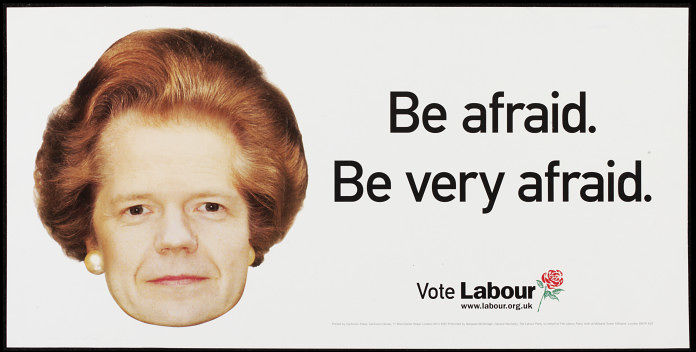
Hope (Labour Party, 2001)
Mary Brewer, Senior Lecturer in English and American Studies
It’s side-splittingly funny!
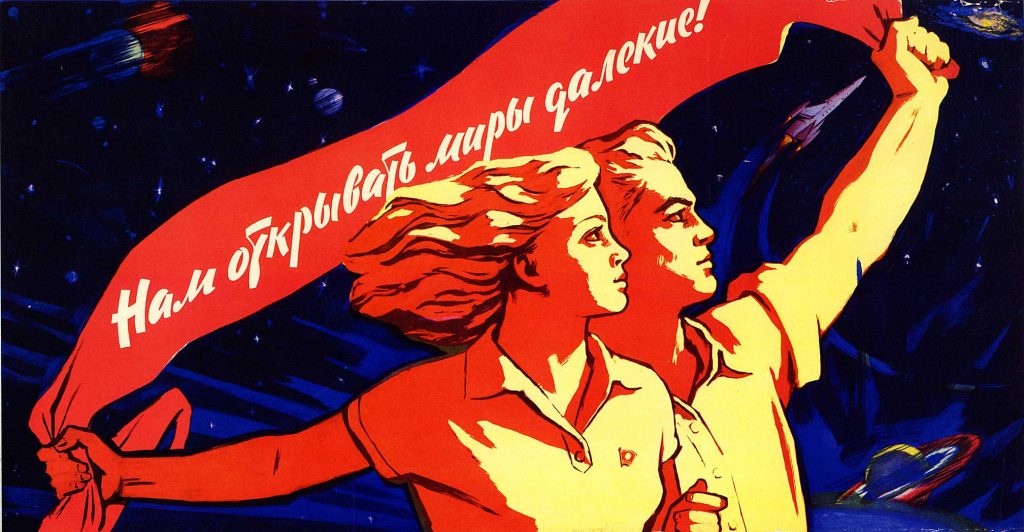
It’s us who’ll be discovering the new worlds (c.1960)
Ksenia Chmutina, Senior Lecturer in Sustainable and Resilient Urbanism
I generally find Soviet space race posters fascinating. This particular one says ‘It’s us who will be discovering the new worlds’. I love the aspirational idea of the youth that will build the future. I think we see this now – the current leadership is pretty useless, so it’s up to young people to resist (and they are resisting).
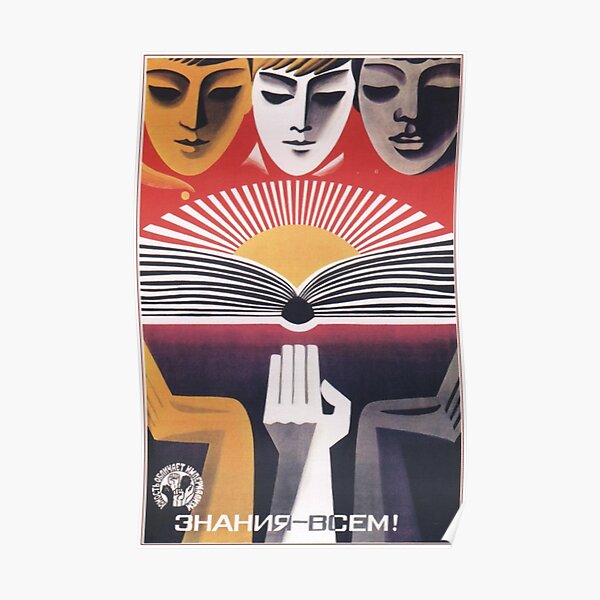
Knowledge To Everyone (c.1970s)
Ksenia Chmutina, Senior Lecturer in Sustainable and Resilient Urbanism
One of my favourite posters, highlighting the importance of knowledge and learning for everyone. For all its faults, Soviet Union provided a very high quality education and many have been encouraged to take evening classes and so on. To me, education is so important – I wish our education were more liberating though.
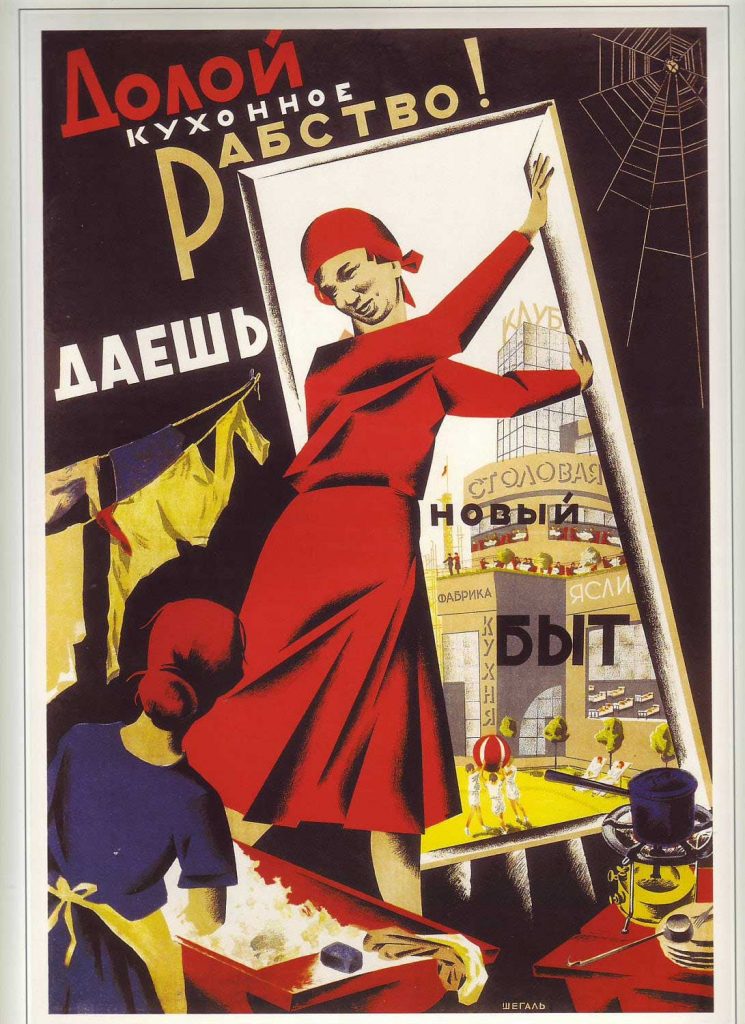
Down with Kitchen Slavery! (1931)
Ksenia Chmutina, Senior Lecturer in Sustainable and Resilient Urbanism
I love the style of this poster, and I love the message (‘Done with kitchen slavery. Give us new reality’). When I moved to the UK, I found it shocking that so many women did not work because of the childcare. When I grew up, I never realised that women don’t have to go to work – and of course there are pros and cons to that, but to me the fact that my mother was working (and still is) was formative. She could work because there was a social network in place – and all the education was free; I can’t quite imagine it any other way.
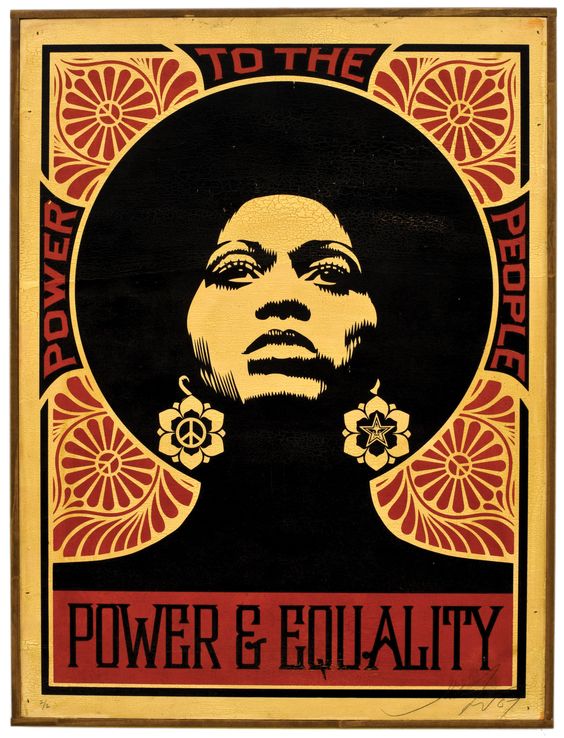
Angela Martinez Dy, Senior Lecturer in Entrepreneurship: Power & Equality: Power to the People (Shepard Fairey, c.2015)
I like it because it reflects the Black Power Movement, is based on Dr Angela Davis’s radical image celebrating the beauty of Black people and the Black Panthers, whose work although controversial was nonetheless powerful and inspiring to anti-racist activism worldwide.
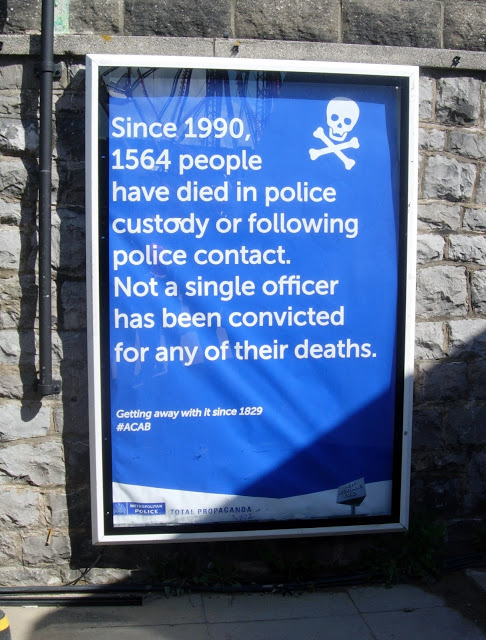
Getting Away With It (Anonymous, 2014)
Ruth Kinna, Professor of Political Theory
This poster is one of a series that appeared on bus shelters in London in 2015. They were intended as counter-propaganda and the design, palette and fonts replicated Metropolitan Police posters which highlighted the value and success of London policing. The series attracted a lot of public interest, with articles in VICE and the New Statesman.
The campaign highlighted issues of police racism as well as violence. The messages chime loudly with recent Black Lives Matter campaigns in the US and Europe. For me it’s a perfect example of subvertising: the critique is instantly decipherable and it draws attention to a systemic problem of injustice. It also brilliantly highlights the Met’s own political communications strategy and its privileged access to public space. In this sense, it draws attention to the highly contentious and deeply politicised nature of public information messaging.
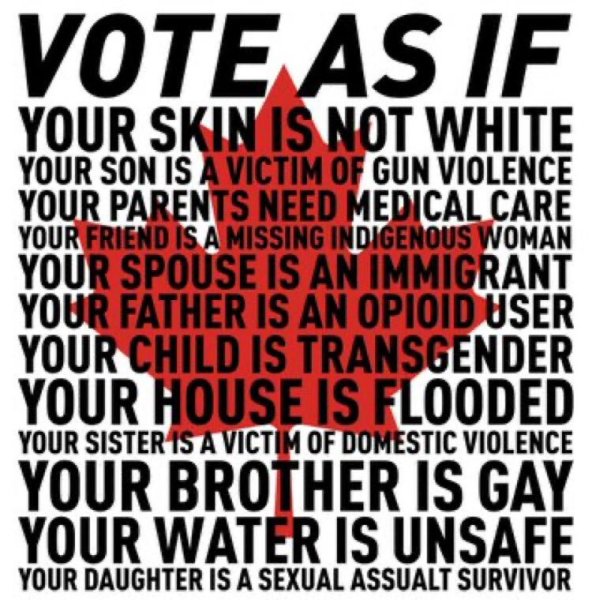
Vote As If… (Anonymous, c.2016)
Catherine Rees, Programme Director: Drama
I like it because it not only reminds people to vote but also that a vote should be used for social change, not self interest.
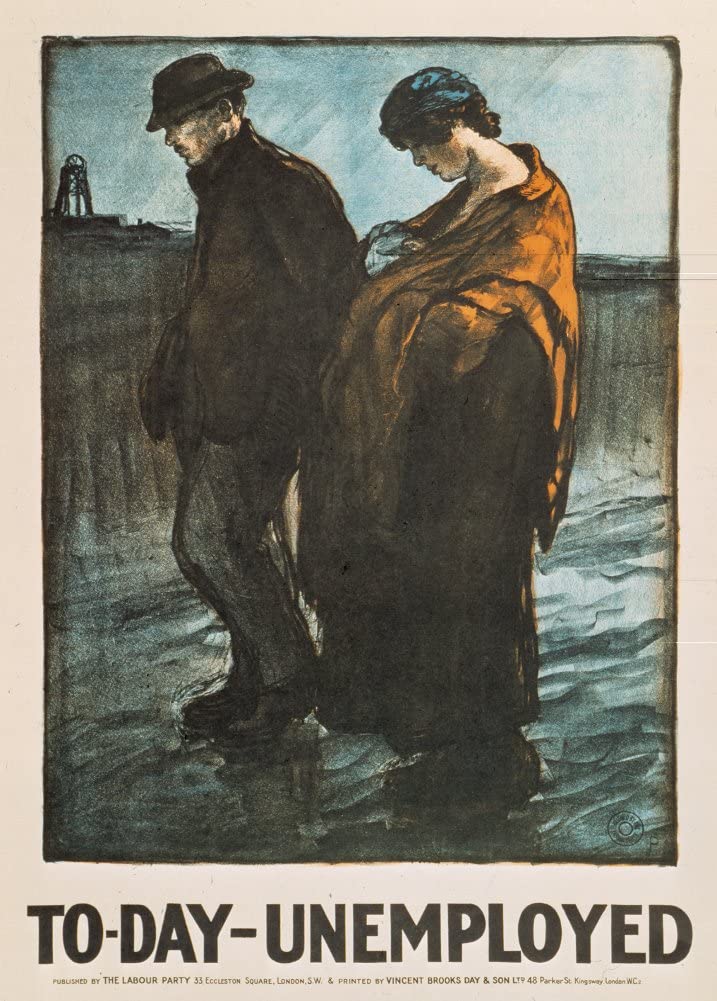
To-Day Unemployed (Labour Party, 1923)
Jon Walker, Director of Enterprise Development
I has this poster on my office wall in the Rutland Building for many years. I was leading fundraising for the University, often engaging with people of very great wealth and status. This poster helped to keep me grounded and to remember that great wealth often comes at a great cost to other people. The poster reminds me of the tendency of economic systems to exploit workers; of the destitution rife before the welfare state was introduced by the Labour Party; and why we have to keep fighting every day for a fairer country – a country that works for the many and not the few.
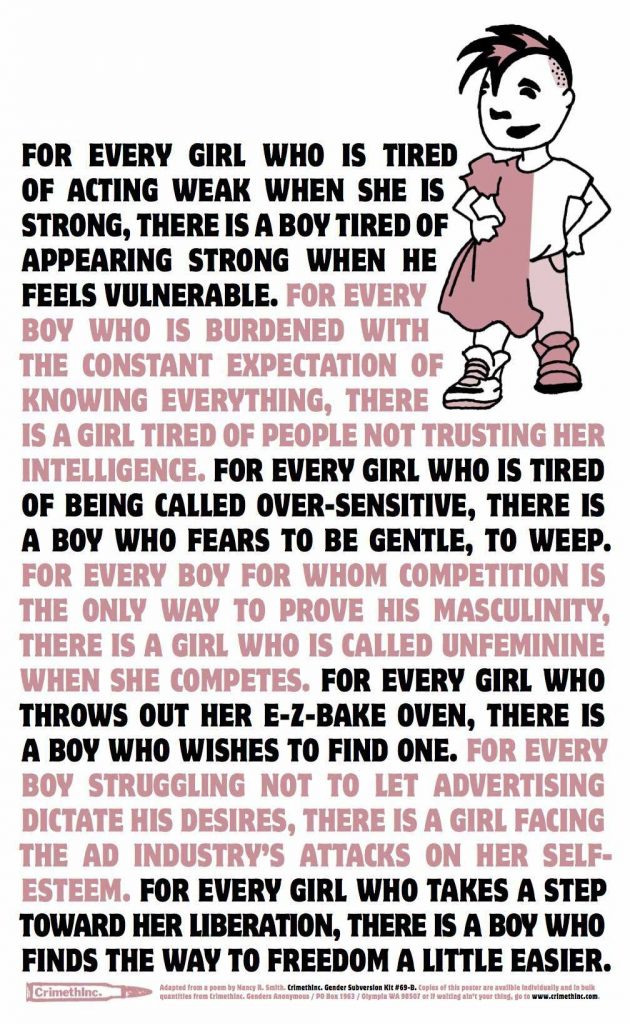
View the poster in full including the back cover here: https://crimethinc.com/posters/gender-subversion-kit
Gender Subversion Kit (Crimethinc/Jacinta Bunnell & Irit Reinheimer 2004)
David Wilson, Software Engineer
This poster lays out so clearly the violence that gendered expectations do to children of all genders by attempting to limit their experiences and self-expression. Life is short, too short to put ourselves in boxes and say “that’s not for me because I have these genitals”. I like that it ends with a positive message about working together to deconstruct the patriarchal and capitalist systems that push them on us.
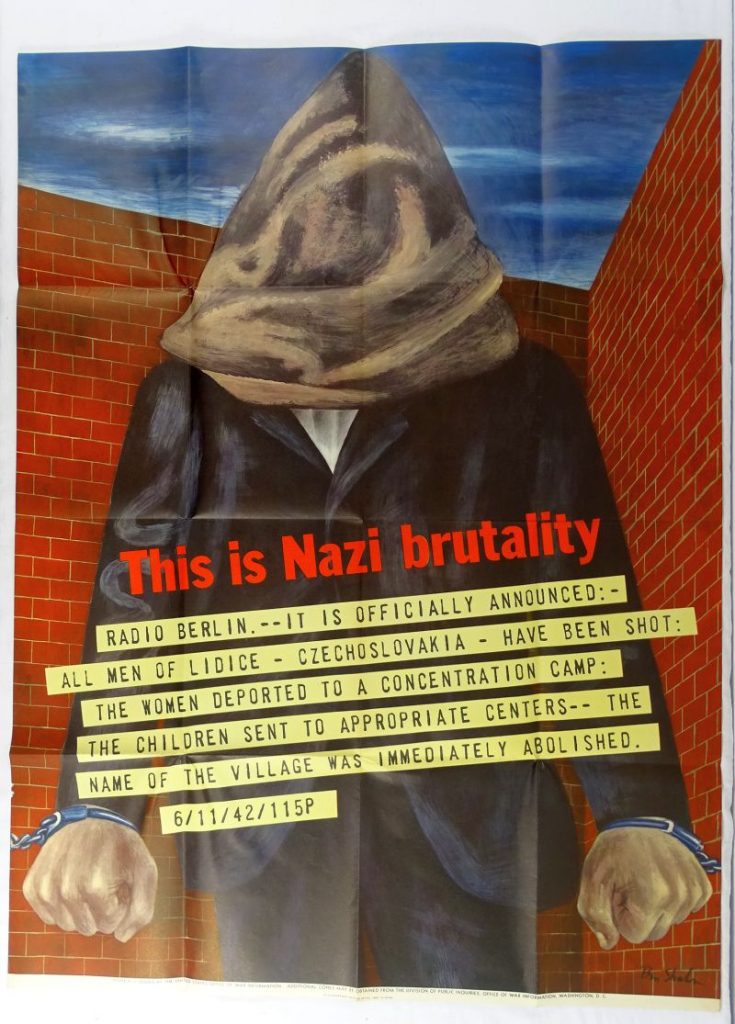
This is Nazi Brutality (Ben Shahn/United States Office of War Information, 1942)
Dominic Wring, Professor of Political Communication
A World War Two classic by Ben Shahn, which has tragic resonance with events relating to the Abu Ghraib scandal 60 years later.
LU Arts is encouraging the University community to campaign for a better world by designing their own political posters. The Poster Project is a unique webpage where you can upload your own poster designs on issues and topics that matter to you. Students are also encouraged to browse and download the published posters to display on windows, noticeboards or bedroom walls. There are a series of cash prizes on offer (up to £250) for the best posters (competition deadline 18 December 2020).
The Limit
The Limit showcases the creativity that exists within the student population, creating a sense of community.